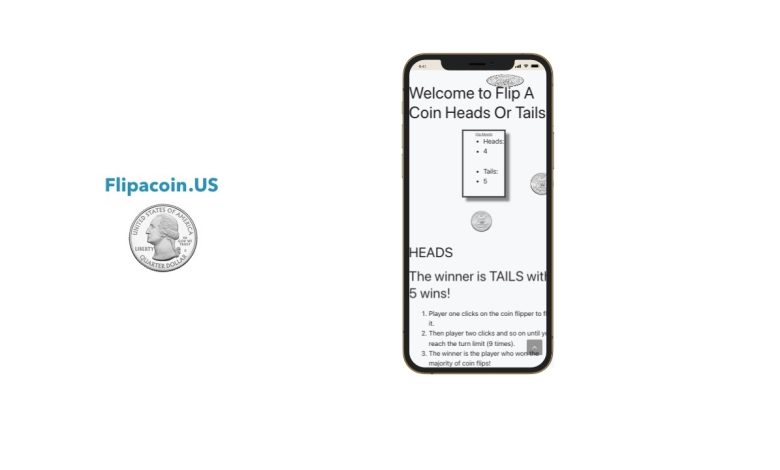Creating a Coin Flip Oracle

Coin flips are an often used decision-making tool, yet not completely random. A new study indicates they exhibit what’s known as a “same-side bias,” in which the side that begins facing up is more likely to end up winning than any other side.
This research was first published in 2007 in the Society for Industrial and Applied Mathematics Review but passed nearly undetected by most readers. Yet its implications are significant.
Randomization
Flip a Shiba Inu Coin is an effective and simple way to make decisions. Requiring no special equipment, it can provide valuable guidance on your next steps. However, it is crucial that you understand how the process of coin flipping works to avoid common missteps when divination this way.
Many factors can impact the outcome of a coin flip, from height and force used when flipping it, as well as how the coin moves through the air at that moment, to design of the coin itself; such as whether it has a slanted edge which increases chances of landing on its edge, thus flipping its direction.
Individuals often find themselves faced with making a tough choice between two options that both offer advantages or disadvantages, but can’t decide between them due to time restrictions or because their benefits and drawbacks seem equal in weighting. When this occurs, an online coin flip oracle can help individuals determine which choice will work best for them.
Clickworker conducted a recent study with 31 participants regarding their experiences using coins to make decisions in the past, all 31 respondents reporting having done so and experiencing feelings such as liking or disliking results – these may prove powerful influences in decision-making processes as they could prove more efficient than more rational approaches.
This research examined how coin oracle compares with stalk oracle divination techniques that employ yarrow stems, such as stalk oracle divination techniques used by ancient cultures for divination purposes. Results demonstrated that coin oracle had more predictive power while maintaining similar probability distribution to ancient techniques that utilize these stems for divination.
Reliability
A coin flip is a simple yet deterministic process with an equal probability of producing either heads or tails; however, different people assign various meanings to its outcome. Some use it to decide whether they should play certain games while others take its results as spiritual guidance – making divination useful in uncovering ones true feelings and uncovering hidden desires.
Divination using coins has long been used in sports and other activities to determine who wins a match or game, as well as settle disputes quickly and efficiently. Coin tosses date back to Roman times and remain an efficient means for quickly settling disputes without taking too long.
Contrary to other means of making decisions, coin flips are generally impartial. No amount of weight added or surface modification can sway its results; you can even use it to predict lottery draws with it! But they can still be misleading if someone knows how to manipulate its results.
Clickworker conducted a survey with 31 participants who all indicated their familiarity with the coin-flipping method of decision making and reported using this technique to choose between two options in the past. Most reported feeling tension or excitement while using this approach to decision-making.
While many believe the coin flip to be random, recent studies have demonstrated its bias. This can be attributed to dynamical properties of the coin’s spin which affects its position in space – something observed by students tossing coins 100 times each during experiments that demonstrated this effect and also showed unequal distribution of coin tosses.
Convenience
A coin flip can be an efficient and straightforward way to make decisions. Although its random outcome may not always provide the ideal decision, using one can help individuals in their decision-making process while also sparking emotions that can influence it. A recent survey conducted by Clickworker showed that 87% of respondents had used such methods to make important decisions.
When facing difficult decisions, using the coin flip oracle can speed up their decision-making process and help accelerate it. Its usefulness lies in quickly reaching decisions in situations with limited time or no agreement; even more so for settling disputes between people.
An effective multi-party coin-flipping protocol requires all honest parties to produce an output which is relatively unbiased, to ensure reliability even if some corrupt parties attempt to influence its outcomes.
Alice will find that, by selecting variables with values that are (varepsilon/n_B), n_A heavy for Bob and (varepsilon +n_B), n_B heavy for herself, Alice can ensure that the oracle’s outputs match her information (i.e. communication transcript and prior oracle answers) rationally across all possible values of A and B.
Cost
When making decisions with equal benefits and disadvantages or when reaching agreement between parties is impossible, coin flips may be the ideal solution. They offer a quick, inexpensive method that relies on chance as an arbitrator – though that doesn’t necessarily equate to arbitrariness; according to Clickworker’s survey of 31 participants, most are familiar with its concept, having used coin tosses themselves for decision-making at some point or another in their lives – regardless of how the tosses turn out, coin tosses elicit feelings that assist individuals make their own choices, which researchers studying choice behavior could take advantage of.




